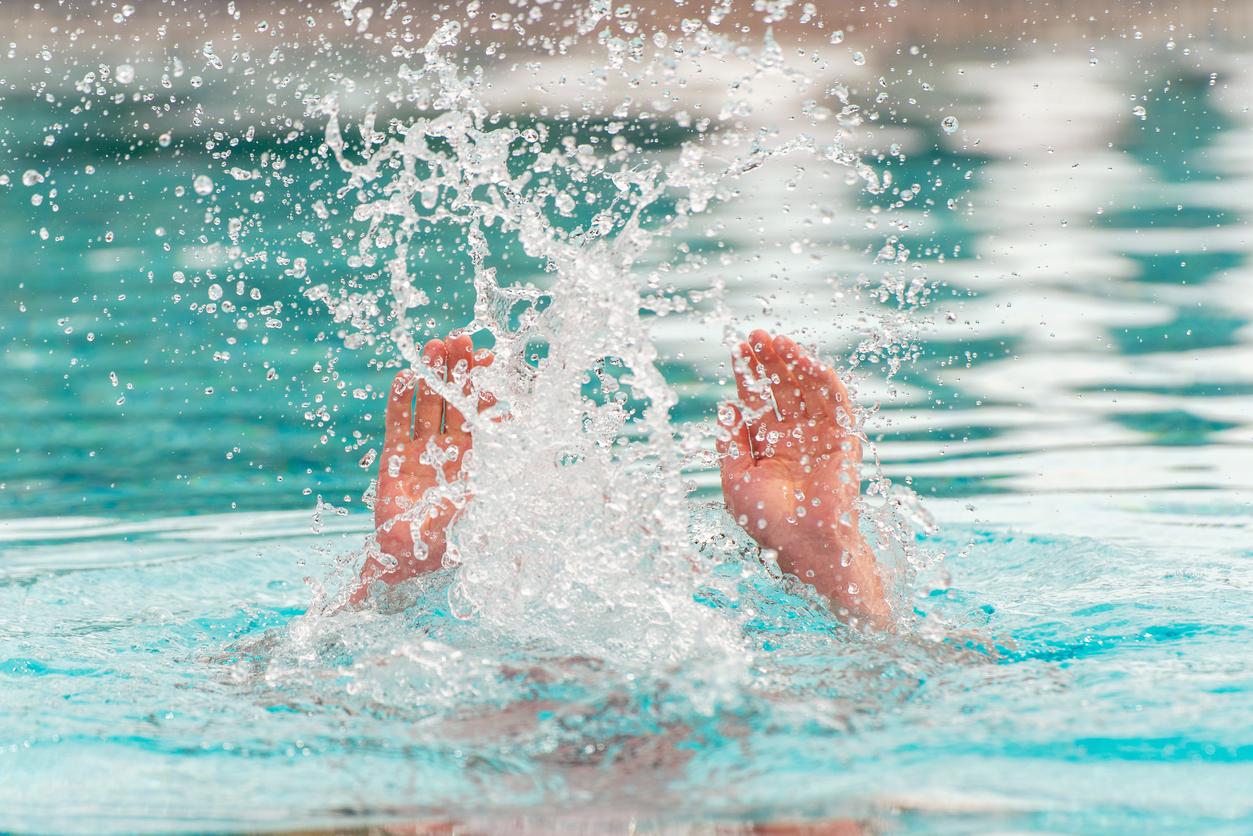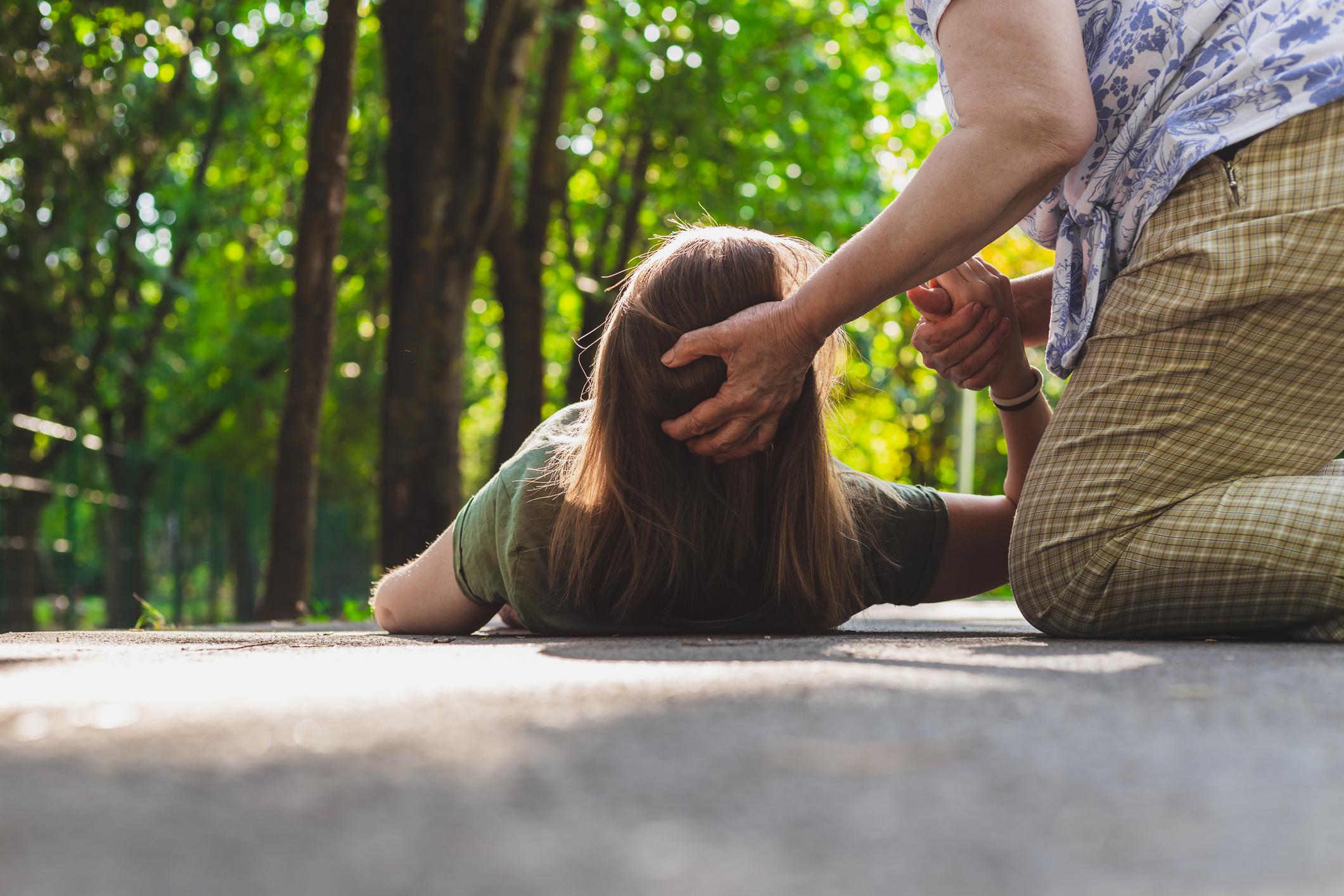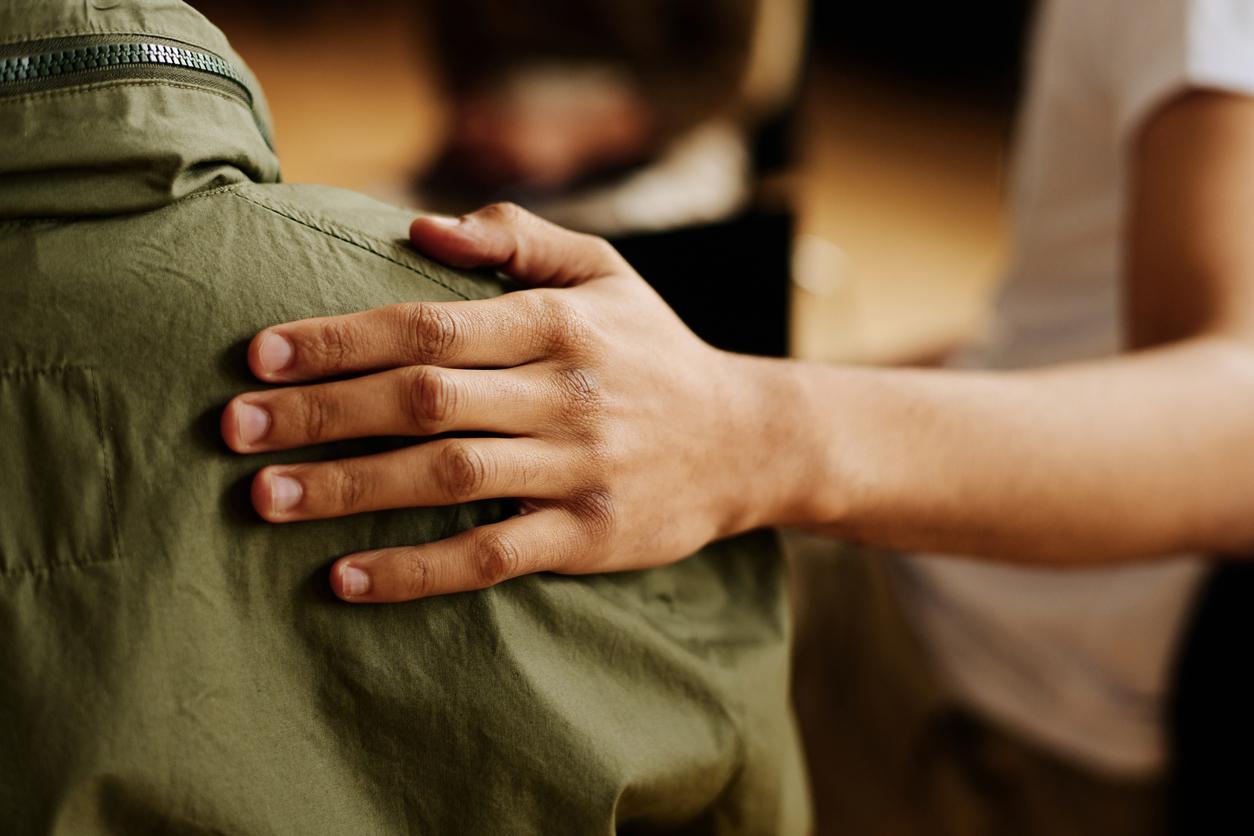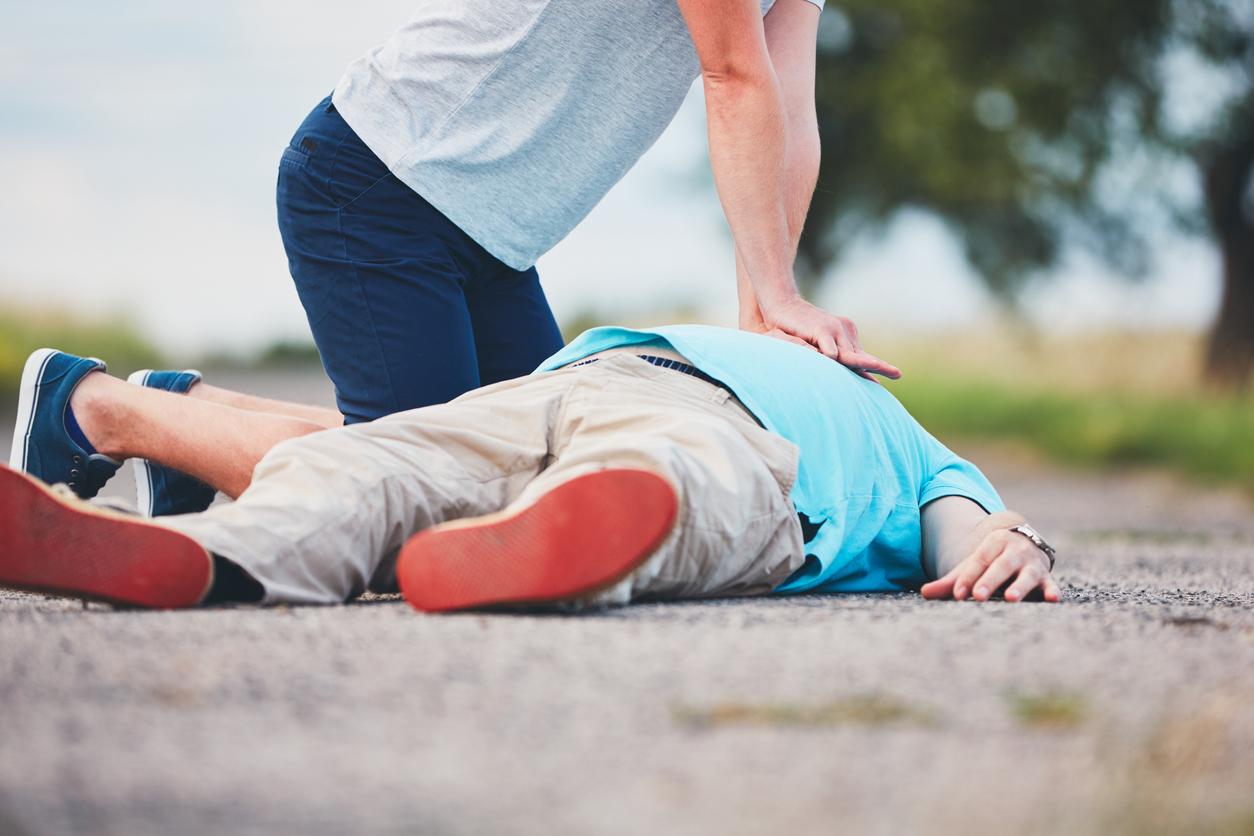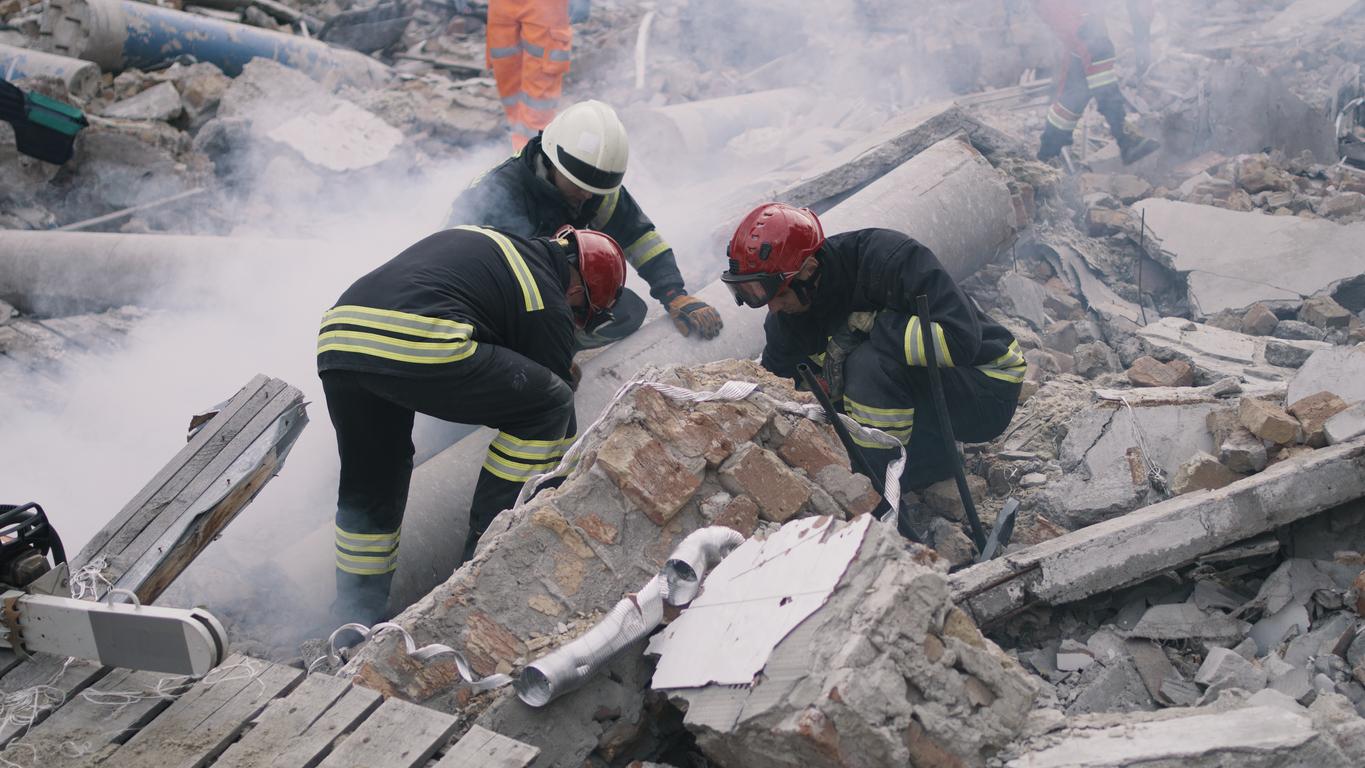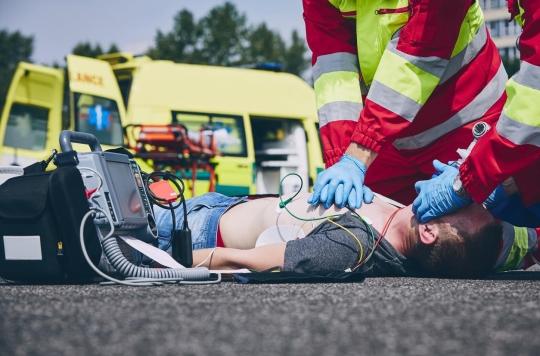The general public must be trained in cardiopulmonary resuscitation, says a German researcher. This simple massage would double or even triple survival after cardiac arrest.

100,000 lives could be saved each year in Europe thanks to cardio-pulmonary resuscitation (CPR) training. This is what emerges from a presentation orchestrated on June 2 by Pr Bernd Böttinger, Director of Science and Research at the European Resuscitation Council (ERC) at the Euroanaesthesia congress in Stockholm (Sweden).
40% survival in Sweden
“350,000 people die from cardiac arrest outside hospitals each year, or around 1,000 per day; it’s the equivalent of two big full jumbo jets that crash every day, every day of the year, without any survivors. If that happened, wouldn’t we do everything to prevent it? »Asks Professor Böttiger. Cardiac arrests outside the hospital thus represent the 3e cause of death in Europe after cancers and other cardiovascular causes.
No wonder this: cardiopulmonary resuscitation is only practiced in one out of five cardiac arrest outside the hospital. And again, this average hides large differences: 12% and 17% of witnesses resort to it in Andalusia (Spain) and in Germany. In Sweden and the Netherlands, 59% and 61% of passers-by perform CPR in the event of cardiac arrest. However, this gesture multiplies by two, or even three, the chances of survival of a victim. For example, in France, 5% of cardiac arrest victims survive. In Sweden and the Netherlands, it is 8 times more.
Stayin ‘Alive, Get Lucky
To hope to achieve these excellent results, a solution in the eyes of Professor Böttinger: train people in resuscitation. He suggests starting with schoolchildren, from 12 years old, for 2 hours per year. Trained teachers themselves can teach their students how to perform cardiac massage, as is already the case in Denmark. The resuscitation specialist also suggests that the trained people pass the message around to them. “A wife, a husband, a son or a daughter, a friend, a taxi driver: absolutely anyone can learn resuscitation, revive someone’s heart, and save their life,” says Prof. Böttiger.
In France, the recommendations: anyone who notices a cardiac arrest (the person is on the ground, unconscious and no longer breathing) is invited to contact the emergency services first by calling 15, or 112 in Europe. In the presence of a cardiac defibrillator, it is strongly recommended to use it. In his absence, the cardiac massage should be started as quickly as possible: place the heel of one hand in the center of the chest, place the other hand on it and interlock the fingers. Compressions should be performed vigorously and quickly (at the pace of Stayin ‘alive Bee Gees or Get Lucky of Daft Punk) until help arrives. If the passerby wishes, he can give the victim two breaths every 30 compressions. These saving gestures are taught to young people during the Days of Appeal and Defense Preparation (JAPD). Training is also available from first aid organizations.
.







